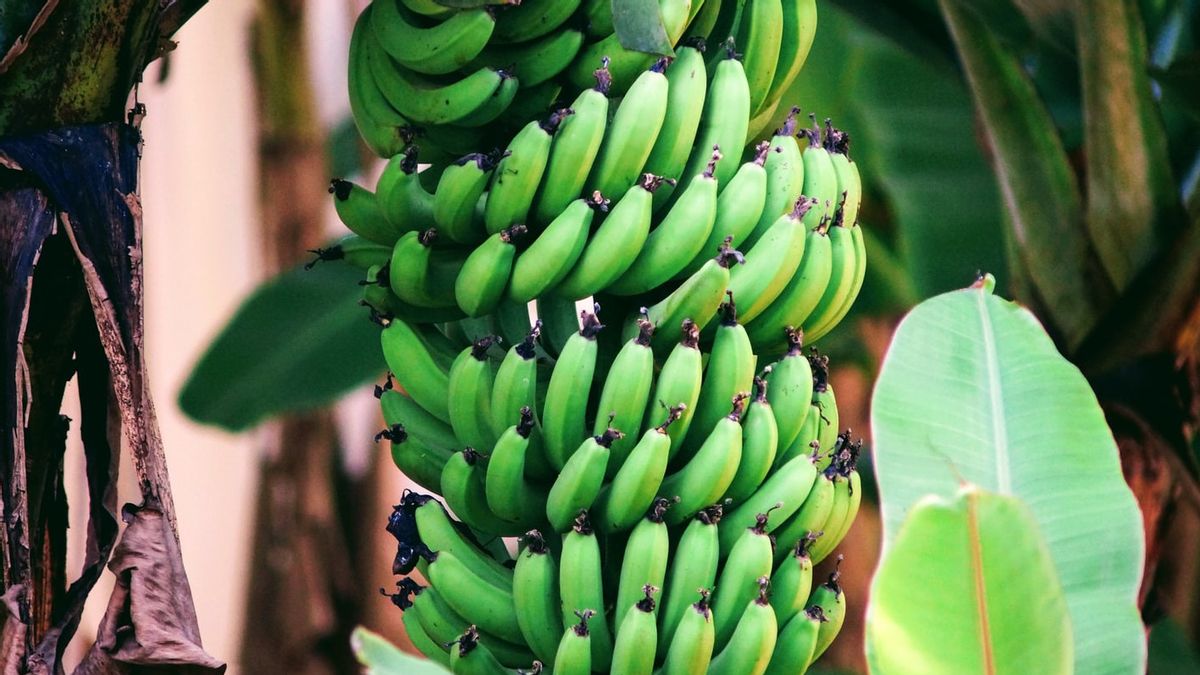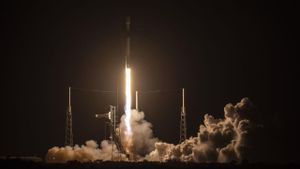JAKARTA - As Indonesia's largest non-oil and gas export market share, China, whose economy has been shaken since its territory was hit by the corona virus outbreak, has indirectly started to have an impact on Indonesia's trade balance.
The government has also prepared various strategies to anticipate the decline in the performance of the trade balance due to the outbreak of the corona virus. One of them is by encouraging the export of potential products with high competitiveness in the global market.
In addition, by diversifying export markets outside of the main destination countries, for example to Middle Eastern countries such as Saudi Arabia, United Arab Emirates, and Egypt, as well as optimizing domestic production to meet local market needs.
"Not only boosting industrial products, currently the government is also encouraging increased export performance of products from other sectors, such as the agricultural sector," said Expert Staff for Regional Development at the Coordinating Ministry for Economic Affairs Bobby Hamzar Rafinus in a statement received by VOI. , Tuesday February 18th.
He said this when he opened the "Initial Planting of Cavendish Banana Plants for Export-Oriented Horticulture Development", in Aceh. As an agricultural country, the role of the agricultural sector in national economic growth is increasingly important and strategic.
Its contribution to Indonesia's GDP is the third largest after the industrial and trade sectors. Then, based on data from the Central Statistics Agency (BPS), during January-December 2019 the export of agricultural products amounted to 3.61 billion US dollars or an increase of 5.31 percent compared to the same period in 2018 which amounted to 3.43 billion US dollars.
"The increase in the export performance of the agricultural sector, one of which is driven by an increase in exports of the horticulture sub-sector, especially annual fruits," said Bobby.
Banana is an annual fruit commodity that has good development prospects because of its high economic value and market potential that is still wide open. According to data from the Trade Map International Trade Statistics (ITC), throughout 2018, Indonesia exported 30,373 tons of bananas worldwide.
The largest export of bananas was to China, amounting to 17,793 tons or worth US $ 8,623, followed by Malaysia with 4,132 tons or US $ 1,114, and the United Arab Emirates (UAE) 2,563 tons or US $ 1,435 worth. However, the demand from these countries still cannot be fulfilled by Indonesia.
This is because, in the same year, China imported 1,544,609 tons of bananas from all over the world. This means that Indonesia can only meet 1.15 percent of the total demand for the Bamboo Curtain country.
Meanwhile, the UAE imported 199,719 tons of bananas from around the world, which means that Indonesia can only meet 1.28 percent of its total demand.
So, to accelerate the program to increase the export of agricultural products, the Coordinating Ministry for the Economy encourages "Export-Oriented Horticulture Development" as one of the Priority Programs (Quick Wins) through a partnership between the central government, local government, the private sector and farmers.
This program is expected to increase the productivity, quality and continuity of banana commodities, so that it can meet the needs of local bananas, such as hotels, restaurants and catering.
PT Great Giant Pineapple (GGP) through the Creating Shared Value scheme will collaborate with farmers and local governments on the basis of empowerment and mutual benefit in terms of cultivating and marketing banana plants.
As a concrete step, this program will continue to be rolled out at the national level by replicating and making the successful development of banana / pineapple export commodities that have been carried out by the Tanggamus Regency Government, Lampung and PT GGP as a benchmark for implementation in other regions.
Previously, the program launched and the first planting of bananas in Jembrana Regency, Bali on December 28, 2019, followed by the first planting in Blitar Regency, East Java on January 21, 2020. In Bener Meriah Regency itself, in the initial stage there will be 4 demonstration plots ( four) hectares of the potential development area of 200 hectares.
"Hopefully, after this activity produces satisfactory results, more and more farmers will participate, so that the minimum land requirement for cultivating banana plants for export purposes of 150 hectares can gradually be fulfilled," said Bobby.
The English, Chinese, Japanese, Arabic, and French versions are automatically generated by the AI. So there may still be inaccuracies in translating, please always see Indonesian as our main language. (system supported by DigitalSiber.id)







